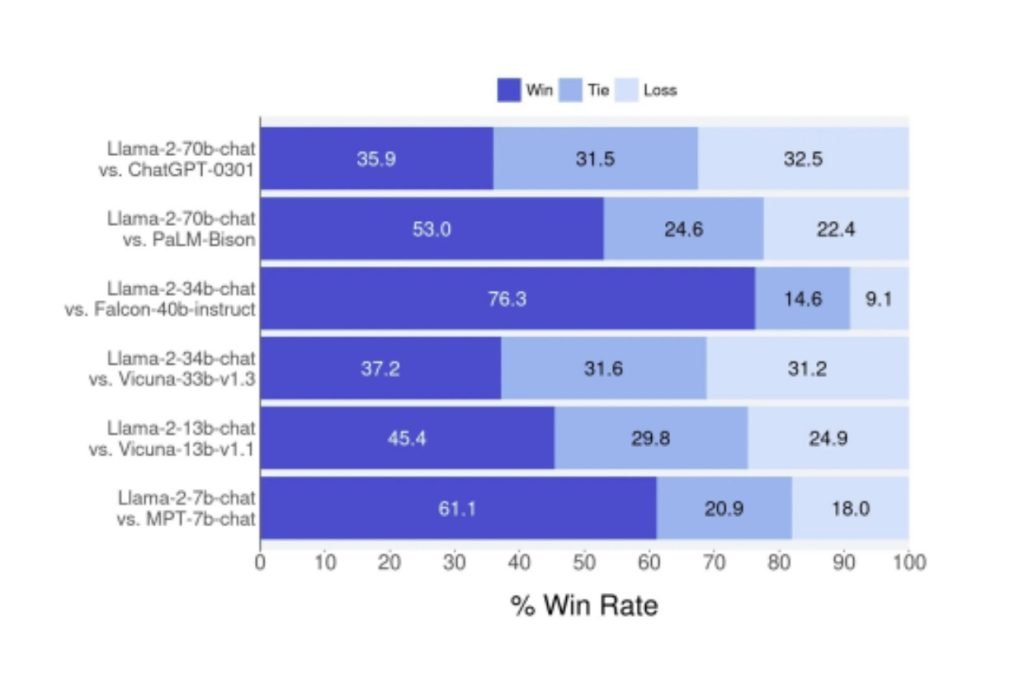Meta has unveiled its latest Llama 2 large language model (LLM), which has demonstrated superior performance in testing compared to other open-source chat models, including GPT, across various benchmarks related to helpfulness and safety.
Additionally, Meta and Microsoft have announced an expanded partnership that allows developers using Microsoft tools to choose between Meta’s Llama and OpenAI’s GPT models when building AI experiences.

Meta’s Llama 2 model is commercially available at no cost, providing an alternative to existing LLMs offered by Google and OpenAI. This move positions Meta as a potential leader in the emerging AI development space.
The release includes three versions of the model trained on different parameter sizes: 7 billion, 13 billion, and an impressive 70 billion. Furthermore, Meta is introducing “Llama 2 Chat,” a fine-tuned variation specifically designed for conversational use cases.
Microsoft, which has already invested $10 billion in OpenAI and integrated GPT into its platforms, will now incorporate Llama 2 into various applications.
This makes Microsoft a significant platform for connecting users with these leading LLMs. Microsoft and Meta both share a commitment to democratizing AI and its benefits, and Microsoft welcomes Meta’s open approach with Llama 2.
One of Meta’s key focuses with Llama 2 is ensuring safety and accuracy, aiming to limit misuse and address issues seen with early LLMs, such as hallucinations, misinformation, and harmful perspectives.
To achieve this, Meta has incorporated substantial training load related to “truthfulness,” “toxicity,” and “bias.” As a result, Llama 2 Chat exhibits remarkable improvement over the pretrained Llama 2 in terms of truthfulness and toxicity, with the percentage of toxic generations shrinking to effectively 0%.
This enhanced trustworthiness of Llama 2 Chat makes it a highly valuable generative AI tool that can be relied upon for a broader range of tasks. While GPT excels at producing human-like text, there are risks associated with using its outputs without careful examination.
By addressing these concerns, Llama 2 has the potential to expand its use cases and become a trusted resource.
The collaboration with Microsoft will give Meta’s new LLM a more significant role in broader AI development, positioning Meta as a potential leader in the field.
Microsoft Azure AI customers will have the opportunity to test Llama 2 with their own sample data to evaluate its performance in different contexts.
Overall, this development marks an interesting shift in the landscape of generative AI tools, promoting trust and accuracy in AI-generated content.









